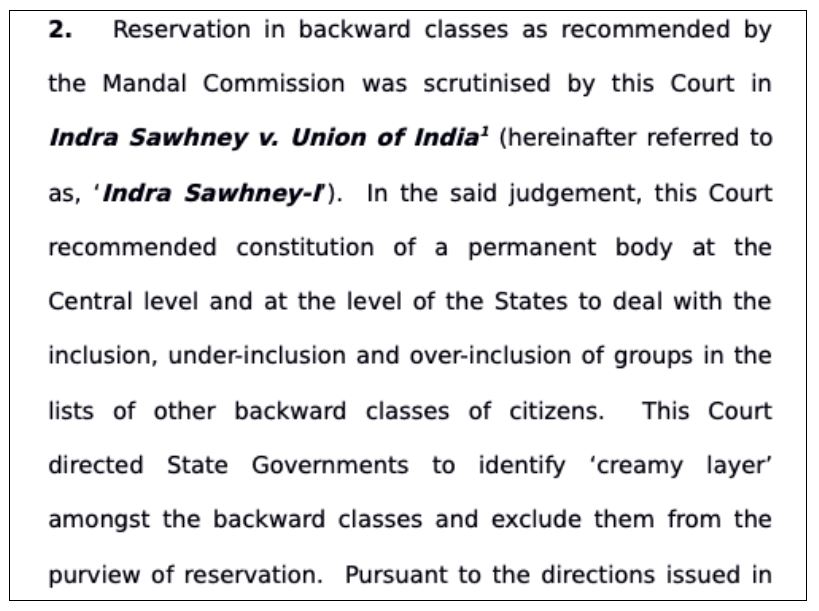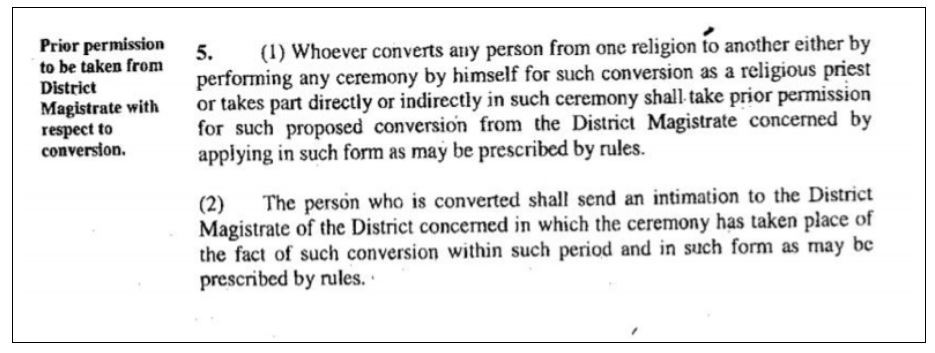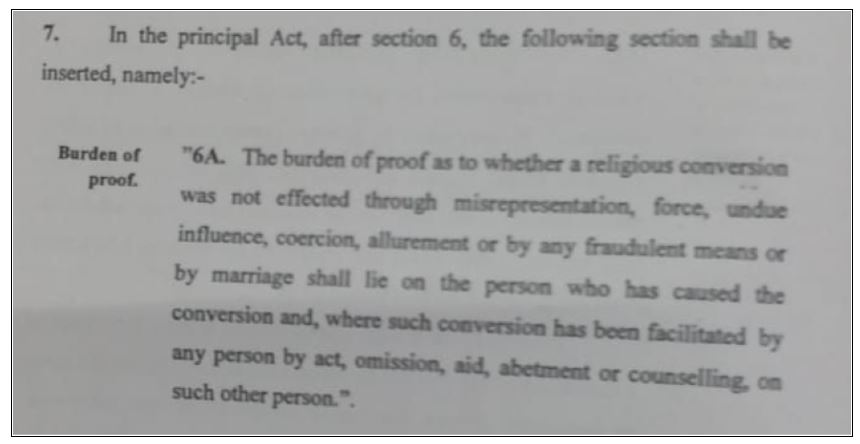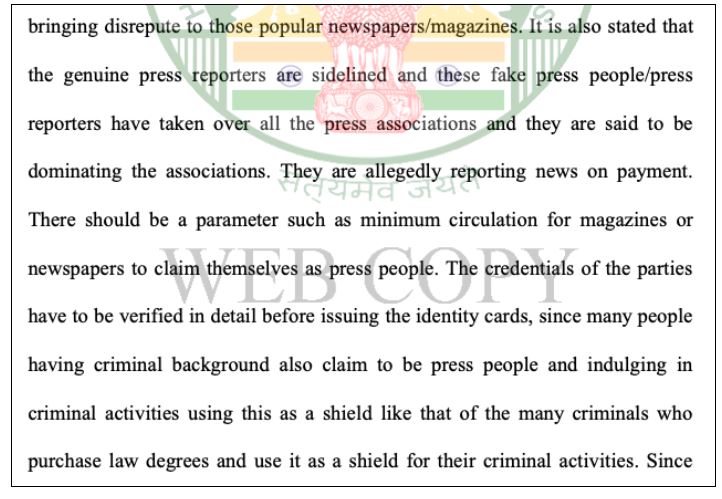In this roundup of court judgements, we look at Constitutional Courts’ remarks & directions on criterion for creamy layer, Gujarat’s Freedom of Religion Act, mental healthcare for prisons, regulation of ethical concerns of media and speedy trial of cases against MPs/MLAs.
Supreme Court: Economic criterion cannot be the sole basis for identifying ‘creamy layer’.
In the case Pichra Warg Kalyan Mahasabha Haryana Vs. State of Haryana, the Supreme Court struck down a notification issued by the State of Haryana and observed that economic criterion cannot be the sole basis for identifying ‘creamy layer’.
The apex court was hearing a plea filed by an organization called ‘Pichra Warg Kalyan Mahasabha Haryana’ challenging a notification (dated 17 August 2016) by the State of Haryana, which specified the criteria for exclusion of ‘creamy layer’ within the backward classes. As per the said notification, children of persons having gross annual income up to Rs. 3 lakhs shall first get the benefit of reservation in services and admission in educational institutions. The left-out quota shall go to that class of backward classes of citizens who earn more than Rs. 3 lakhs but up to Rs. 6 lakh per annum. As per the notification, the sections of backward classes earning above Rs. 6 lakh per annum shall be considered as ‘creamy layer’ under Section 5 of the Haryana Backward Classes (Reservation in Services and Admission in Educational Institutions) Act.
The apex court noted that despite Section 5(2) of the 2016 Act making it mandatory for identification and exclusion of ‘creamy layer’ to be on the basis of social, economic, and other relevant factors, the State of Haryana has sought to determine ‘creamy layer’ from backward classes solely on the basis of economic criterion.
The apex court also observed that a clear preference has been given within the non-creamy layer to persons of a category having annual income up to Rs. 3 lakhs, in the matter of admission in the educational institutions, etc.
In 2018, in an earlier order, the Punjab & Haryana high court held the state government notification making a sub-classification within the non-creamy layer segment as annual income below Rs. 3 lakhs and annual income within Rs. 3 -6 lakhs as unconstitutional. The High Court also highlighted that there was no data to justify the sub-classification within the non-creamy layer.

In conclusion, the apex court quashed the said notification (dated 17 August 2016), giving liberty to the State Government to issue a fresh notification within a period of 3 months after taking into account the principles laid down in Indra Sawhney-I judgement and the criteria mentioned in Section 5(2) of the 2016 Act for determining ‘creamy layer’.
Gujarat HC: Permission of District Magistrate not needed for conversion by an inter-faith couple; high court stays Section 5 of Gujarat Freedom of Religion Act (Amendment) Bill 2021
The Gujarat high court refused to stay its earlier order staying Section 5 of Gujarat Freedom of Religion Act (Amendment) Bill 2021, noting that the certain provisions of the law “interferes with the intricacies of marriage including the right to the choice of an individual, thereby infringing Article 21 of the Constitution Of India”.

In a writ petition filed by Jamiat Ulama-E-Hind and Muhahid Nafees challenging the provisions of the Gujarat Freedom of Religion (Amendment) Act 2021, the bench Chief Justice Vikram Nath and Justice Biren Vaishnav noted that certain provisions treat every conversion by marriage as unlawful and put parties who have validly entered into inter-faith marriage “in great jeopardy”.
Section 5 of the Act directs that all marriages that involve conversion from one religion to another must acquire permission from the District Magistrate (DM). In other words, the person facilitating the conversion must take prior permission from the DM by applying with a prescribed form and the person converted has to inform the DM within a stipulated time period.
The bench also highlighted that Section 6A of the Act deals with the ‘Burden of Proof’ on the persons who caused the inter-faith marriages because “marriage itself and a consequential conversion is deemed as an unlawful conversion attracting penal provisions”.

The high court observed that a common man might perceive every conversion due to inter-faith marriage as prohibited by the Act. In conclusion, the high court stayed Section 5 of the Amendment Bill 2021. Other details were covered in our previous story.
Kerala HC: Directed the State to set up a mental health establishment in at least one prison for their well-being as per Section 103(6) of the Mental Healthcare Act.
In a suo moto proceeding, the Kerala high court directed the State to set up a mental health establishment in at least one prison for their well-being as per Section 103(6) of the Mental Healthcare Act.

The high court took cognizance of a news report regarding mentally ill prisoners remanded to custody for many years without any mental health support. The State, Kerala State Legal Services Authority (KELSA), and High Court Registry submitted information about mentally ill remand prisoners in the State along with suggestions to address the issue.
Considering a report submitted by the Secretary of the KELSA, the bench of Justice VG Arun asserted that the provisions of the Code of Criminal Procedure (CrPC) were yet to be amended in tune with the provisions of the Mental Healthcare Act, 2017. For instance, in most of Chapter XXV of the CrPC, mentally ill accused were still termed as ‘lunatic’ and mental health establishments as lunatic asylums.
The State accordingly framed a scheme for the rehabilitation of mentally ill prisoners continuing in Mental Health Centres after acquittal. This scheme provided for shifting such prisoners to Psycho-Social Rehabilitation Centres and sanctioned an amount of Rs. 39,660/- per year to such centres.
In the lieu of this, the high court issued the following interim directions:
- The State government shall immediately set up a mental health establishment in at least one prison in the State. The prisoners with mental illness shall ordinarily be referred to and cared for in the said mental health establishment.
- The government shall forthwith constitute Mental Health Review Boards under Section 73 of the Mental Healthcare Act, the composition of which shall be in accordance with Section 74 of the Act.
- The Medical Officers of prisons and mental health establishments shall strictly comply with the duties imposed on them under Section 103 of the Mental Healthcare Act.
- The Mental Health Review Boards shall ensure that prisoners with mental illness are allowed to live with dignity and treated as equal to persons with physical illness.
- The Mental Health Review Boards shall make available details of the mentally ill remand prisoners detained in jails and mental health establishments to the Kerala State Legal Services Authority. Based on the details thus received, the Secretary, KELSA may bring deserving cases to the notice of the High Court, to enable the High Court to take an appropriate decision on the judicial side.
- The State Government shall, with the assistance of the KELSA, take necessary steps to trace the relatives of acquitted mentally ill prisoners and of the undertrial prisoners fit for rehabilitation and persuade their family members to provide necessary care and protection to those persons. If the family members of the acquitted mentally ill persons refuse to take them back, the State Government shall take steps for their rehabilitation by transferring them to the willing registered mental health establishments. Once the mentally ill acquitted person is shifted to a mental health establishment, the amount fixed under the concerned Government Order (GO) (dated 10 July 2019) shall be disbursed to that establishment.
- The Special Secretary, Social Justice Department shall file a report specifying the steps taken in terms of the above directions.
Madras HC: Directed formation of a Press Council of Tamil Nadu (PCTN) as a state-level media regulatory body.
In the case S Sekaran Vs State of Tamil Nadu and Ors, the Madras high court directed the Tamil Nadu government to create a Press Council of Tamil Nadu (PCTN) within 3 three weeks which would act as a State-level media regulatory body to clamp down on illegal and unethical practices in journalism.
The PCTN is to be headed by a retired judge of either the Supreme Court or the High Court and comprised of reputed journalists, retired civil servants and Indian Police Service (IPS) officers as members.

The Bench of Justices N Kirubakaran and P Velmurugan observed that fake journalists and the phenomenon of paid news have grown so exponentially. The following directions were issued:
- The Council shall have sole authority to recognize press clubs and journalists’ associations or unions in the state of Tamil Nadu.
- The Council should stipulate a period of election, conduct, and approve elections to these clubs, unions, and associations.
- The State Government is directed not to issue press stickers, ID cards and other benefits unless the organization or media house discloses the number of employees, salary steps, TDS details, tax paid to the government and proof of circulation of at least 10,000 copies.
- To curtail the menace of fake journalists, PCTN shall have the power to identify fake journalists and lodge complaints against them to jurisdictional police. Members of the public can send their complaints regarding fake journalists to the welfare board which shall inquire and initiates criminal action.
- People aggrieved by the fake news or motivated and agenda-based news could lodge complaints with the PCTN which shall summon the concerned media house and probe the veracity of the complaints. Depending upon the finding, the Council shall have powers to order the source of the offending news item to carry a rejoinder or apology or publish the response of the de facto complainant prominently. The news agencies or media houses or journalists operating within the jurisdiction of the Council shall be duty-bound to receive and respond to the Council’s summons and submit the details called for by the Council.
In conclusion, the Government of Tamil Nadu has been instructed to comply with the above directions and file a compliance report within a period of four weeks, failing which the Director, Information and Public Relations Department shall appear before the court.
Supreme Court: For the speedy trial of cases against MPs/MLAs, special/CBI courts need to be set up in different parts of the state where more than 100 cases are pending.
In the case Ashwini Kumar Upadhyay & Ors. Vs Union of India & Ors., the Supreme Court has called for the establishment of more Special/CBI Courts to deal with the long pendency of criminal cases against sitting and former MPs/MLAs.
The bench of Chief Justice of India NV Ramana, Justice DY Chandrachud and Justice Surya Kant re-emphasized the urgent need of rationalizing the establishment of Special/CBI Courts.
The court took cognizance of a Status Report by the Central Bureau of Investigation (CBI), which revealed that there are 121 cases pending trial before different CBI Courts involving sitting MPs and Ex-MPs and 112 cases involving sitting MLAs and Ex-MLAs. As per the report, 37 cases are still at the investigation stage, the oldest being registered on 24th October 2013. There are several cases in which the charge sheet was filed as far back as the year 2000, but cases are still pending either for the appearance of the accused, framing of charges or prosecution evidence.
The bench noted that it may not be humanly possible for one/two courts in a state to expedite all the trials or take up the same on a day-to-day basis in terms of Section 309, Code of Criminal Procedure (CrPC). The court has reiterated that all the High Courts have a responsibility to set up adequate Courts and ensure meticulous compliance of the directions issued by the top Court from time to time.
Featured Image: Important Court Judgements


